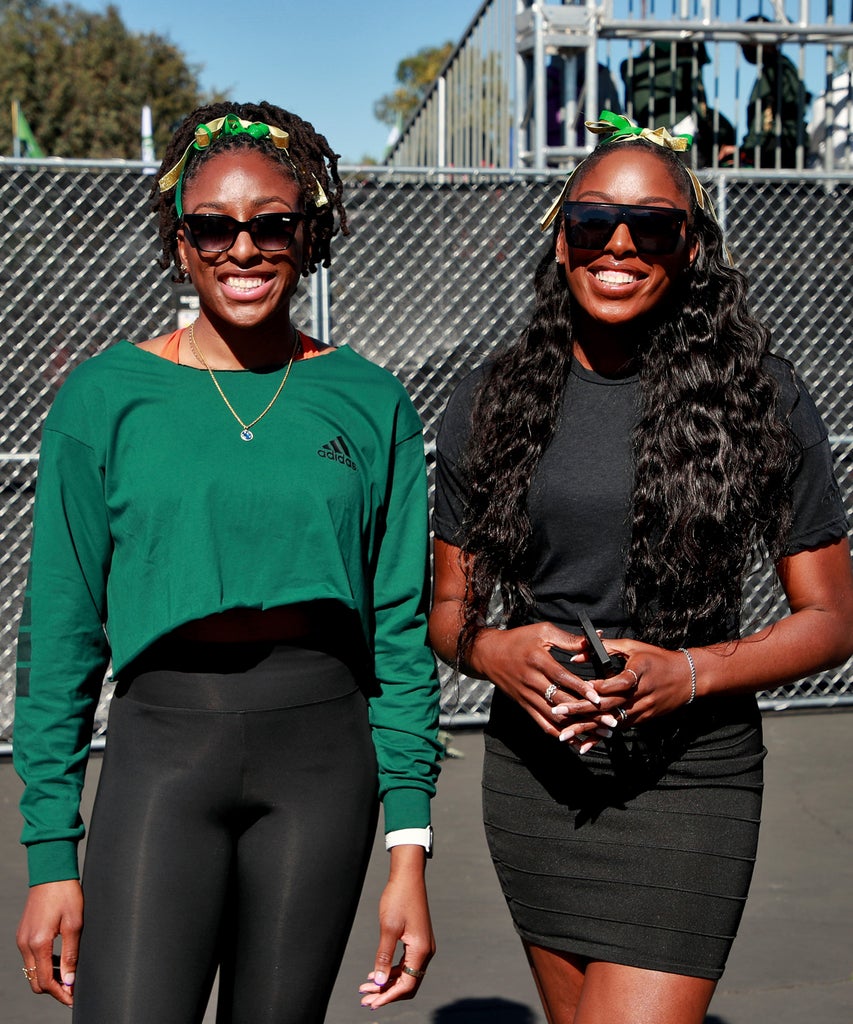
If there’s one thing you need to know about Gen-Z, it’s that this generation isn’t waiting for college to take ownership of their future — especially when it comes to fashion. These days, they’re merging their knowledge of technology with a passion for creative design to get a head start on their fashion careers. Through ‘Wood U,’ in partnership with Adidas, PENSOLE, founder Dr. D’Wayne Edwards is empowering young creatives to develop tangible skills that will pave the way for a future in design, and he’s starting them young.
Adidas recently hosted a pep rally for the students of Audubon Middle School in Inglewood, California, celebrating the talented youth who participated in the ‘Wood U’ workshops. “I’m big on fundamentals so in the beginning stages of the workshop we had the students focus on the basics of drawing, coloring, and using their hands to create,” Dr. Edwards said about the workshops that took place last fall. “The most important thing was for them to believe in the power they held within themselves before we dove into the technology part of the program.” The students’ time with Adidas led to the creation of innovative apparel and footwear that they designed to represent love, ambition, and power.
Unbothered had the opportunity to speak with Los Angeles Sparks players and sisters Nnemkadi Chinwe Victoria “Nneka” Ogwumike and Chinenye “Chiney” Ogwumike, who surprised the students at the event. We spoke about the importance of this partnership for the next generation, as well as the athletes’ personal style and fashion journeys.
Unbothered: Why is the ‘Wood U’ initiative so important for students in the Inglewood community?
Nneka: “We’ve always resonated with initiatives pertaining to education and giving back to the community — being directly involved with the schools on the ground and meeting kids and being able to explore their passions. Activations like this are most important because they allow people who have made it to come back and serve as a representation of the fact that their dreams are possible.”
Chiney: “As Nneka mentioned, the people that come back —whether they’re athletes, entertainers, or [in the] corporate [world] —, show the next generation that they matter and that there are pathways for their dreams and success. I love that this is also a creative approach to the curriculum; a lot of times, the focus is on more traditional forms of education like math and english, but with this initiative, students can educate themselves in so many ways along with their creative passion.”
What do you hope young Black women who love sports and want to be on the professional level can learn from you?
Chiney: “I hope that they feel like the world is ready for them to succeed on their own terms. For a long time, representation has been scarce when it comes to women, women of color, and just women of different identities. As those beacons of light, we’re saying, Look, we’ve had this experience, and just because it’s not the traditional experience, that doesn’t mean it’s bad. I really want them to learn what makes them special and lean all the way into it to the best of their ability.”
How would you both describe your personal style and what makes you excited about fashion?
Chiney: “Between the office and the club, I’m in the middle. The best word I could describe it is ‘clatchet’ [classy and ratchet]. I love dresses, colors, bling, and pretty much being flashy. I also incorporate sneakers into everything as well, because I’m very versatile and could be going from the gym to the studio, and back.”
Nneka: “I’d describe my style as eclectic, but I definitely lean more towards classic trends. I love wearing things that people have never seen before, and monochromatic is my thing. I love my Adidas sets and sneakers, but I do enjoy heels, too. Most importantly, I try to source my fashion from Black-owned, women-owned, and African-owned brands.”
Coverage of WNBA style is steadily growing. How did that come about specifically for the LA Sparks?
Nneka: “Funny enough, it was the season before the bubble season (three years ago). I pretty much sent out a message to all the player reps saying we couldn’t just be showing up to the game wearing our uniforms; we looked like an AAU team, and it felt a bit juvenile. The whole point of players’ style being captured is to have the opportunity to express ourselves. Plus, women’s style is more fun and exciting — we have a bit more versatility to work with.”
Like what you see? How about some more R29 goodness, right here?
Where Was Black American Culture At The Met Gala?

No comments:
Post a Comment